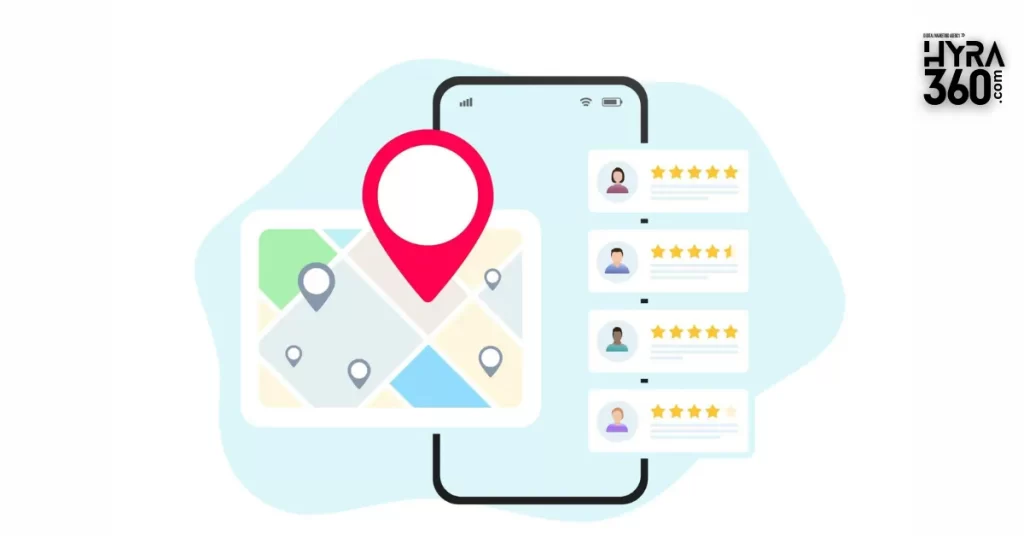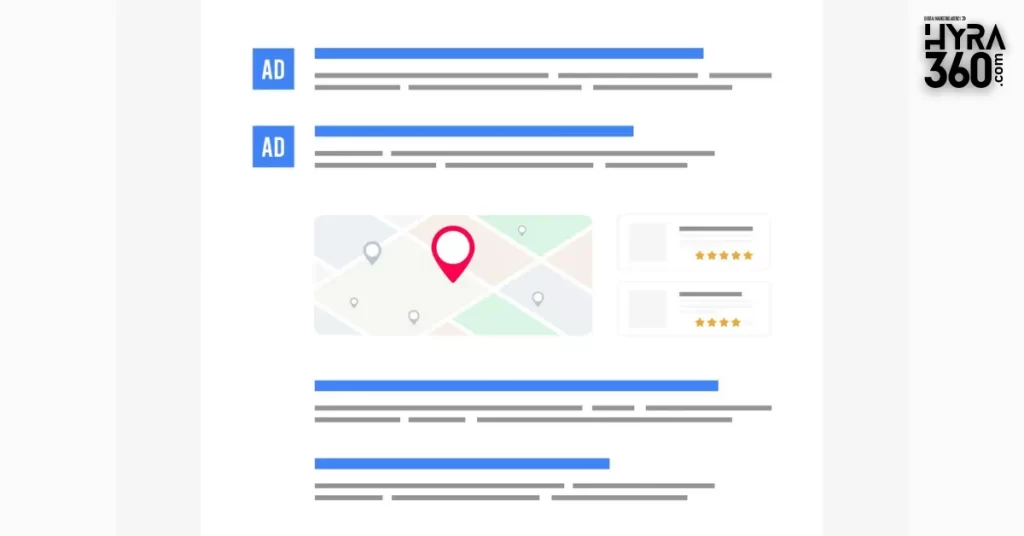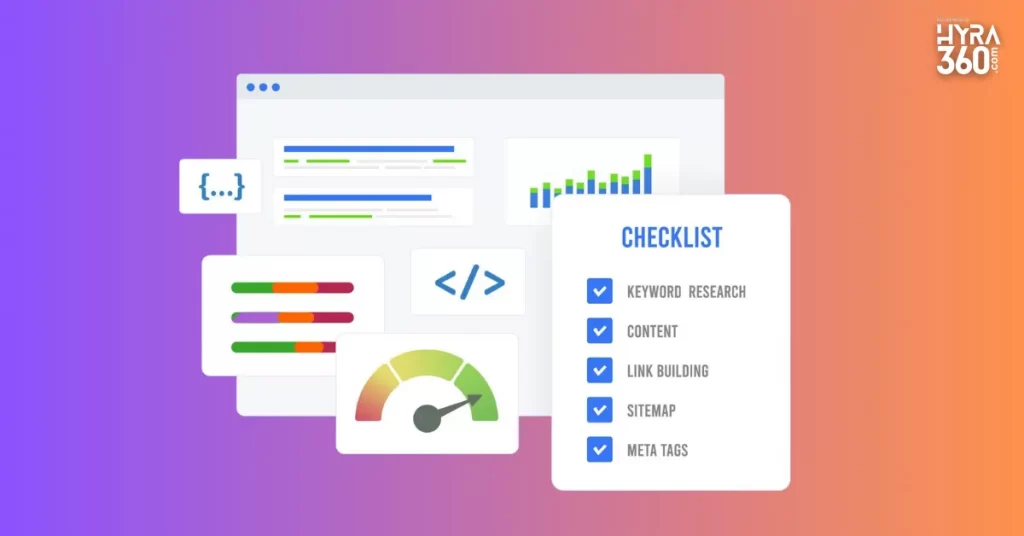Local SEO Mastery for Real Estate: A Comprehensive Guide
In the world of real estate, establishing a strong local online presence is paramount. This guide delves into the role of local SEO in real estate marketing, offering insightful strategies tailored for local real estate agencies. Let’s explore how optimizing for local searches can elevate your agency’s visibility and attract potential clients.
On this page
Step 1: Understanding The Impact Of Local SEO In Real Estate
1.1. The Significance of Local SEO
Local SEO plays a pivotal role in enhancing the visibility of real estate agencies within specific geographic areas. It serves as a potent tool to connect with potential clients seeking properties in their immediate vicinity.
1.2. Benefits of Local Search for Real Estate Businesses
Embracing local search optimization offers tangible benefits, including gaining prominence in local search results and establishing meaningful connections with potential clients in the immediate vicinity.
1.3. Google My Business (GMB) as a Local SEO Powerhouse
Uncover the power of Google My Business (GMB) in the context of local SEO. This section guides you through the process of setting up and optimizing a GMB profile specifically tailored for real estate agencies.
Step 2 : Optimizing Google Maps For Real Estate Agencies
2.1. Importance of Google Maps for Local Searches
Explore the pivotal role of Google Maps in influencing local search rankings. Understand how integrating Google Maps enhances the user experience and contributes to the overall success of your local SEO efforts
.2.2. Claiming and Verifying Your Google My Business Location
Navigate through a step-by-step guide on claiming and verifying your real estate agency’s location on Google Maps. Ensure accuracy in business information to establish a reliable and trustworthy online presence in local searches.
2.3. Encouraging Client Reviews on Google Maps
Delve into the impact of client reviews on local SEO and learn effective strategies for encouraging satisfied clients to leave positive reviews on Google Maps. Harness the power of testimonials to bolster your agency’s credibility in the local real estate market.

Step 3: Local Citation Building For Real Estate Businesses
3.1. What Are Local Citations and Why Do They Matter?
Understand the essence of local citations and their critical role in local SEO. Learn how to identify and rectify inconsistent business information across online platforms to solidify your agency’s online presence.
3.2. Building Citations on Real Estate Directories
Explore the strategic utilization of industry-specific directories for local citation building. Acquire best practices for consistent and accurate citation building to further enhance your agency’s visibility in local searches.
3.3. NAP Consistency for Real Estate Agencies
Delve into the significance of maintaining Name, Address, and Phone number (NAP) consistency across online platforms. Learn strategies for ensuring uniform business information, establishing trustworthiness, and optimizing for local searches.
Step 4: On-Page SEO
The importance of on-page SEO in real estate cannot be overstated. Optimizing website content for local search engines is crucial for improving visibility and attracting potential buyers. Unique and relevant content is key to engaging visitors and boosting search engine rankings. Here are some tips for creating SEO-friendly real estate listings:
- Keyword Optimization: Incorporate relevant geographic keywords in titles, headings, meta descriptions, alt text, hashtags, and URLs to improve local search visibility
- Create Video Content: Utilize video content to showcase properties and engage potential buyers. Videos can significantly enhance the user experience and contribute to improved search rankings
- Schema Markup: Implement schema markup to provide search engines with detailed information about your real estate listings. This can enhance the visibility of your listings in search results and improve click-through rates
- Optimize for Image SEO: Ensure that property images are optimized for search engines by using descriptive file names, alt text, and captions. This can improve the visibility of property listings in image search results
- Fix Broken Links: Regularly audit your website for broken links and ensure that all property listings are accessible and error-free. Broken links can negatively impact user experience and search engine rankings
- List Properties on Major Platforms: Syndicate property listings on major real estate platforms to increase visibility and attract potential buyers. This can improve the reach of your listings and drive more traffic to your website
- Write Guest Blogs: Contribute guest blogs to reputable real estate and local publications to build backlinks and establish authority in the industry. Guest blogging can improve the visibility and credibility of your real estate website
- Get Local Citations: Ensure that your real estate business is listed accurately on local directories and citation websites. Consistent NAP (Name, Address, Phone Number) information is essential for local SEO and can improve local search rankings
- Earn Online Reviews: Encourage satisfied clients to leave positive reviews on Google My Business and other review platforms. Positive reviews can enhance the credibility and reputation of your real estate business, leading to improved search visibility
- Create City-Specific Content: Develop city-specific content through blogs, transcribed videos, and interviews to target local search queries and establish authority in specific geographic areas. City-specific content can improve local search visibility and attract local buyers

Step 5: Off-Page SEO Strategies
Off-page SEO plays a crucial role in local SEO for real estate, as it helps to establish your website’s authority and visibility in search engine results. Here are some off-page SEO strategies for real estate websites:
The Role of Backlinks in Local SEO
Backlinks are essential for improving your website’s domain authority and search engine rankings. High-quality backlinks from authoritative websites can significantly boost your local search visibility and drive more traffic to your website.
How to Build High-Quality Backlinks for Real Estate Websites
1. Guest Blogging: Contribute guest blogs to reputable real estate and local publications to build backlinks and establish authority in the industry. Guest blogging can improve the visibility and credibility of your real estate website.
2. Local Business Listings: Ensure that your real estate business is listed accurately on local directories and citation websites. Consistent NAP (Name, Address, Phone Number) information is essential for local SEO and can improve local search rankings
3. Social Media Engagement : Foster partnerships with authoritative websites and influencers in the real estate industry. Engage with them on social media platforms and participate in relevant discussions to increase your online presence and build high-quality backlinks.
4. Content Marketing: Create valuable and shareable content, such as informative blog posts, infographics, or videos, that others in your industry will want to link to. This can help you build high-quality backlinks and establish yourself as an expert in the real estate industry.
The Importance of Local Citations and Listings
Local citations and listings are crucial for establishing your website’s credibility and local presence. Ensuring consistent information across local directories and platforms can significantly improve your local search visibility and attract potential clients seeking real estate solutions in their immediate vicinity.
By implementing these off-page SEO strategies, real estate professionals can enhance their website’s authority, visibility, and search engine rankings, ultimately attracting more buyers and establishing a strong online presence in their target markets.
Step 6: Visual Content in the real estate industry
Visual content is a powerful tool in real estate marketing, playing a significant role in captivating potential buyers and showcasing properties effectively. The psychology behind the visual appeal of real estate properties is well known, as strong visuals and high-quality videos grab attention, generate desire, and drive engagement
Research consistently shows that listings with professional-quality photos are more engaging and generate more leads Here are some insights and best practices related to the importance of visual content in real estate marketing:
Importance of High-Quality Images and Videos
Investing in quality visual assets and video marketing provides another way to engage home buyers, build authority, and distinguish yourself from other realtors
mages are the most useful website feature for 9 out of 10 home buyers, and they help bring the neighborhood to life in the eyes of potential home buyers and real estate investors
Real estate videos are a powerful way to draw attention to property listings and agent profiles, as they allow potential buyers to virtually tour properties and get a feel for the space
Alt-Text and SEO
Incorporating alt-text for images and videos is crucial for SEO, as it provides descriptive information about the visual content to search engines. This helps search engines index the content and improves accessibility for users. Additionally, adding subtitles and a transcript to videos can further enhance accessibility and search engine indexing
Virtual Tours and Video Content
Virtual property tours, live streams, and video content allow real estate professionals to showcase listings and provide potential buyers with an immersive experience. Ideas for real estate video content include open-house live streams, recordings of new luxury listings with property tours, market updates and analysis, Q&A videos answering common buyer questions, hyperlocal neighborhood tours showcasing amenities, and more
In a competitive market, the power of visually appealing content cannot be understated. It is critical for real estate professionals looking to effectively market their properties and engage with potential buyers. By leveraging high-quality images, videos, and virtual tours, real estate professionals can create a compelling and immersive experience for potential buyers, ultimately driving engagement and conversions.
Step 7: Mobile-Friendly Website
In today’s digital age, mobile devices have become the primary means of accessing the internet, and this trend is no different in the real estate industry. As such, having a mobile-friendly website is crucial for real estate professionals looking to improve their online presence and visibility. Here are some insights and best practices related to mobile-friendly websites for real estate:
Dominance of Mobile Searches
According to Statista, mobile traffic accounted for 52.64% of all global traffic in 2017, and this number is expected to grow to 79% by the end of 2023
Importance of Mobile Responsiveness
Mobile responsiveness refers to the ability of a website to adapt to different screen sizes and resolutions, providing an optimal user experience across all devices. A mobile-friendly website ensures that users can easily navigate through the site, view property listings, and contact real estate agents without any issues
A mobile-friendly website can also improve your site’s visibility, cover a wider range of audiences, improve SEO scores, boost conversions, and help you stand out from the crowd
Google’s Mobile-Friendly Test
Google’s Mobile-Friendly Test is a quick and easy way to test whether a page on your site is mobile-friendly
The test analyzes your website’s mobile responsiveness and provides a score based on how easily a visitor can use and navigate through your website on a mobile device
The test results include a screenshot of how the page looks to Google on a mobile device, as well as a list of any mobile usability problems that it finds
. Mobile usability problems are issues that can affect the page when visited on a mobile device, including small font sizes (which are hard to read on a small screen) and the use of Flash (which isn’t supported by most mobile devices)
Tips for Creating a Mobile-Friendly Website
- Use Responsive Design: Responsive design ensures that your website adapts to different screen sizes and resolutions, providing an optimal user experience across all devices
- Optimize Images: Large images can slow down your website’s loading speed, which can negatively impact the user experience. Optimize images for mobile devices to ensure fast loading times
-
Simplify Navigation: Simplify your website’s navigation to make it easy for users to find what they’re looking for. Use clear and concise labels for menu items and ensure that the menu is easy to access on mobile device
- Use Large Font Sizes: Use large font sizes to ensure that text is easy to read on small screens. Avoid using fonts that are too small or difficult to read on mobile devices
- Minimize Pop-Ups: Pop-ups can be annoying on mobile devices, as they can take up the entire screen and be difficult to close. Minimize the use of pop-ups on your mobile website to improve the user experience
Step 8: Blog Content
Blogging is an essential tool for real estate professionals looking to improve their online presence and visibility. By creating high-quality, SEO-friendly blog content, real estate agents can establish themselves as experts in their field, attract potential clients, and improve their search engine rankings. Here are some insights and best practices related to blog content for real estate:
Blogging as an SEO Tool
Blogging is an effective way to improve your website’s search engine rankings. By creating high-quality, informative blog content, you can attract more visitors to your site and improve your site’s visibility in search engine results pages (SERPs)
. Blogging also provides an opportunity to target long-tail keywords, which are more specific and less competitive than broad keywords, making it easier to rank for them
Topics Relevant to the Target Audience
When creating blog content, it’s essential to focus on topics that are relevant to your target audience. This means understanding the needs and interests of your potential clients and tailoring your content to address those needs
For example, you could write about home-buying tips, market analysis, local neighborhoods, or community events. By providing valuable information that resonates with your target audience, you can establish yourself as a trusted resource and attract potential clients.
Establishing Expertise and Fresh Content for Indexing
Blogging is an effective way to establish yourself as an expert in your field. By creating informative, well-researched blog content, you can demonstrate your knowledge and expertise to potential clients
.Additionally, regularly updating your blog with fresh content can improve your site’s indexing and search engine rankings. Search engines prioritize sites that regularly update their content, so creating new blog posts on a regular basis can help improve your site’s visibility in search engine results pages
Tips for Creating SEO-Friendly Real Estate Listings
When creating real estate listings, it’s essential to optimize them for search engines. Here are some tips for creating SEO-friendly real estate listings:
- Use descriptive, keyword-rich titles and descriptions
- Include high-quality images and videos
- Use alt-text to describe images and videos
- Include relevant keywords throughout the listing
- Provide detailed property descriptions, including features and amenities
- Use bullet points and lists to make the listing easy to read and scan
By following these tips, you can create real estate listings that are optimized for search engines and attract potential clients.

Step 9: Social Media
Social media platforms are essential tools for real estate agents looking to improve their online presence and visibility. By creating engaging and informative social media content, real estate agents can establish themselves as experts in their field, attract potential clients, and improve their search engine rankings. Here are some insights and best practices related to social media for real estate:
Social Media Platforms for Real Estate Agents
There are several social media platforms that real estate agents can use to promote their business and listings. Some of the most popular platforms include Facebook, Instagram, LinkedIn, and TikTok
Each platform has its own unique features and audience, so it’s essential to choose the right platform(s) for your target audience and content type.
Sharing Listings and Engaging Content
Social media is an excellent platform for sharing real estate listings and engaging content. By sharing high-quality images and videos of your listings, you can attract potential clients and generate leads
.Additionally, creating engaging content that resonates with your target audience can help establish your brand and improve your online visibility.
Driving Traffic to Your Website
Social media can also be an effective tool for driving traffic to your website. By including links to your website in your social media posts, you can direct potential clients to your site and improve your site’s search engine rankings
Additionally, creating engaging content that encourages social media users to visit your website can help improve your site’s traffic and visibility.
Building High-Quality Backlinks for Real Estate Websites
Backlinks are an essential component of off-page SEO and can significantly impact your site’s search engine rankings. To build high-quality backlinks for your real estate website, consider reaching out to other industry professionals, such as mortgage brokers or home inspectors, and asking them to link to your site
Additionally, creating high-quality, informative blog content can attract backlinks from other websites and improve your site’s search engine rankings.
The Importance of Local Citations and Listings
Local citations and listings are essential for improving your site’s visibility in local search results. To improve your site’s local SEO, consider listing your business in local directories and ensuring that your NAP (Name, Address, Phone Number) information is consistent across all online platforms
.Additionally, creating location-specific content and targeting localized phrases can help improve your site’s visibility in local search results.
Step 10: Encouraging Reviews and Testimonials
Encouraging reviews and testimonials is a critical aspect of local SEO for real estate professionals. Positive reviews and high ratings not only attract more customers but also significantly impact local search rankings. Here are some insights and best practices related to encouraging reviews and testimonials for real estate:
Impact of Reviews on Local SEO Rankings
Reviews and ratings play a significant role in determining local search rankings. A study on local SEO rankings examined the impact of reviews and ratings on Google Maps and found that maintaining a high volume of reviews and an average rating of 4.1 or higher can help improve visibility in Google Maps results
Businesses with a higher overall rating and more reviews can rank higher in the Local Pack, which is the top three listings that appear in local search results under the map
Encouraging satisfied customers to leave reviews can significantly impact your local search rankings and improve your online visibility.
Encouraging Client Feedback
Encouraging satisfied customers to leave positive reviews is essential for improving your local search ranking and attracting more clients. You can encourage customers to leave reviews by sending out follow-up emails, adding a call-to-action on your website, or posting on social media
Providing customers with links to your Google listing and starter questions can make it easier for them to compose reviews and subtly encourage them to use targeted keywords
Responding to Reviews
Responding to reviews is a crucial part of your SEO efforts and can significantly impact your local search rankings. It shows that you value your customers and their feedback, and can help enhance your online reputation
Strategies to Optimize Local Marketing Efforts Through Review Responses
To leverage review responses for your SEO, actively encourage your customers to leave reviews and respond promptly and professionally to their feedback
.Continually acquiring new reviews and retaining existing ones sends the right signals to Google that your business is active and that the public still cares about it
Responding to reviews can help improve your local search ranking and attract more customers to your business.
Step 11: Tracking Progress
Tracking progress is a crucial aspect of any SEO strategy, as it allows you to measure the effectiveness of your efforts and make necessary adjustments to improve your online presence. Here are some insights and best practices related to tracking progress for your real estate website:
Importance of Analytics in SEO
Analytics tools, such as Google Analytics, provide valuable data on your website’s performance, user behavior, and traffic sources
By analyzing this data, you can identify areas for improvement, track your SEO efforts, and make data-driven decisions to enhance your website’s search engine rankings.
Monitoring Key Metrics
Some essential metrics to monitor include:
- Organic Traffic: The number of visitors coming to your site from search engines without paying for ad placement
- Keyword Rankings: The position of your website on search engine results pages (SERPs) for specific keywords or phrases
- Bounce Rate: The percentage of visitors who leave your site after viewing only one page
- Average Time Spent on Site: The average amount of time users spend on your website
- Pages per Visit: The number of pages viewed by each visitors
Using Tools like Google Analytics
Google Analytics is a powerful tool that can help you track your website’s performance and monitor SEO metrics. By setting up Google Analytics on your real estate website, you can monitor keyword rankings, track organic traffic, and analyze user behavior
Conclusion
In today’s digital age, establishing a strong online presence is crucial for real estate professionals. Local SEO is a powerful tool that can help real estate businesses improve their online visibility, attract targeted leads, and gain a competitive edge in their local market. By implementing the strategies and techniques outlined in this guide, you can elevate your visibility and attract more clients to your business.
We started by discussing the importance of local SEO for real estate professionals and how it can impact your online presence. We then explored various strategies and tips for optimizing your website for local search engines, including keyword research, optimizing website content, and creating SEO-friendly real estate listings.We also discussed the role of off-page SEO strategies, such as building high-quality backlinks and local citations, in improving your local search rankings. Additionally, we explored the importance of visual content, mobile-friendly websites, blog content, social media, and reviews and testimonials in enhancing your online presence.
Finally, we emphasized the importance of tracking progress and using analytics tools like Google Analytics to monitor key metrics and make data-driven decisions to improve your website’s search engine rankings.In conclusion, mastering local SEO is essential for real estate professionals looking to establish a strong online presence and attract more clients to their business. By implementing the strategies and tips discussed in this guide, you can elevate your visibility, establish your expertise, and gain a competitive edge in your local market.



























